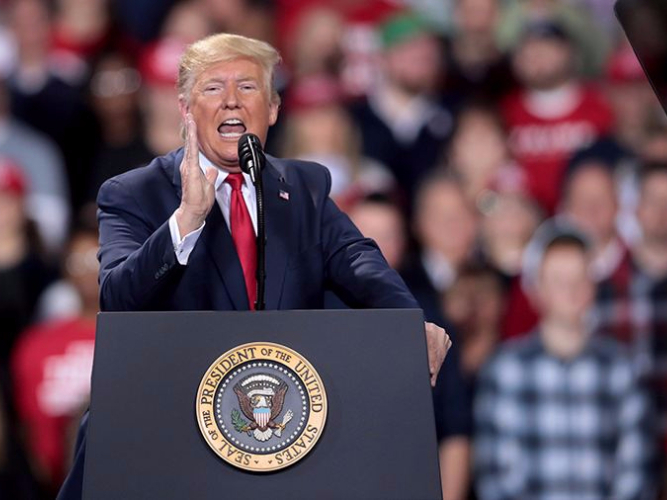Washington DC (People’s Daily) - US President Donald Trump signed on Friday the National Defense Authorization Act (NDAA) before leaving on vacation. The $738 billion fiscal year 2020 authorization funds military and civilian pay raises, new aircraft, ship construction, tanks and armored vehicles and also creates the first new armed service since 1947 —the US Space Force.

File photo
According to the Pentagon, since Trump took office, there has been almost $2.5 trillion in defense spending.
“Today also marks another landmark achievement, as we officially inaugurate the newest branch of our militarily. This is a very big and important moment,” said Trump at the signing ceremony for the bill.
The Space Force will be the sixth formal force of the US military, after the US Army, Air Force, Navy, Marines and Coast Guard.
US Air Force Secretary Barbara Barrett said that the new service will immediately amalgamate all members of the Air Force Space Command into the new service. The Space Force will be the US military’s smallest branch. The new service has about 16,000 Air Force personnel to start.
Space plays a major role in defense and modern warfare, for example through satellite-based technology and weapon systems. NATO declared space as an independent military area this year. French President Emmanuel Macron announced the establishment of a military space command in July.
Steve Kitay, US deputy assistant secretary of defense for space policy, said in August. “Space will not be an Achilles’ heel” for the US.
The US Union of Concerned Scientists said that creating a Space Force would trigger a space arms race and threaten US satellite security.
Laura Grego, a physicist and senior scientist in the Global Security Program at UCS, said in a statement: “At best a space force is a distraction from what is necessary to ensure space security in the face of rapid technological and geopolitical changes. At worst, it would prompt a space arms race that would threaten US military and civilian satellites, not protect them. Diplomacy, not bureaucratic reorganization is urgently needed.”


